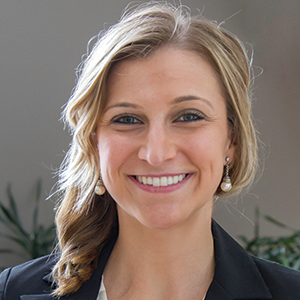Teach, learn & transform biochemistry education
The American Society for Biochemistry and Molecular Biology’s upcoming meeting, Transforming Undergraduate Education in the Molecular Life Sciences, or TUEMLS, is a small, interactive event focused on rethinking teaching strategies to better support student success in biochemistry and molecular biology. It invites educators and aspiring instructors, including postdocs and graduate students, to explore new approaches and pedagogical goals.
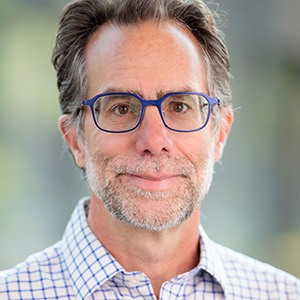
Talks and panel discussions will include sessions on the skills, competencies and key concepts taught through biochemistry and molecular biology content, as well as on the pedagogical approaches that lead to student achievement. Each day will begin with a keynote talk on topics such as culturally responsive pedagogy, an indigenized chemistry curriculum and alternative grading practices.
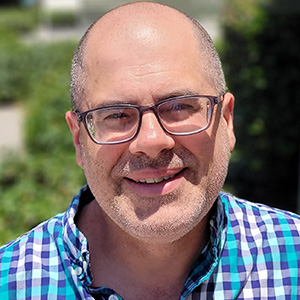
The meeting will be organized by Joe Chihade, professor of chemistry at Carleton College, Daniel Dries, assistant professor of chemistry at Chapman University, Laura Listenberger, associate professor in biology and chemistry at St. Olaf College and Betsy Martinez–Vaz, professor of biology at Hamline University.
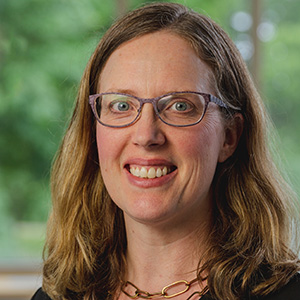
ASBMB Today talked to Dries and Martinez–Vaz about what’s new and exciting about this year’s program and the hottest topics in education that will be covered, such as online teaching and integrating research into the classroom.
The interview has been edited for length, clarity and style.
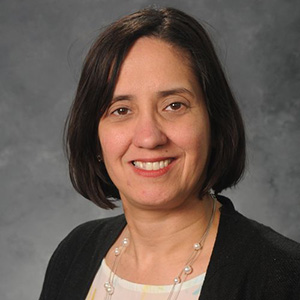
What is the value of attending TUEMLS?
Martinez–Vaz: I would like to emphasize how important it is to keep up to date with education trends, despite the number of years you’ve been teaching. You can always learn and implement something new. In other words, you can always teach an old dog a new trick. I believe coming to this meeting is a fantastic opportunity to network as well as learn something that will make you a better teacher.
Dries: The meeting forces us to justify the education choices we're making. A lot of the topics we discuss are grounded in research. Sometimes we adopt teaching practices because those are the things we're accustomed to, but they're not necessarily grounded in best practices for our students. Frankly, sometimes these practices are not engaging for us as instructors. The point of this meeting is to challenge our beliefs and practices.
Who should attend this meeting?
Dries: Anybody who cares about teaching. That includes new folks, graduate and postdoctoral trainees, anyone who wants to get off to a strong start early in their career, veterans who want to shake up their teaching practices and even those who want to push back on progressive ideas and ask us to consider the strengths and values of traditional instruction.
Martinez–Vaz: We also encourage people who do not teach biochemistry, but teach something similar, like general chemistry, organic chemistry or cell biology, to attend since those fields are related to biochemistry and molecular biology education. We hope to gather people from across many fields.
Tell me about this year’s meeting and its theme.
Martinez–Vaz: Our theme is reexamining what we teach and how we teach it, and we are focusing on how we can support all students in our classrooms by applying our knowledge of pedagogy and leveraging new tools. We will focus on culturally responsive pedagogy, as well as key concepts, themes and teaching tools from a variety of practitioners.
Dries: As we were conceiving of the meeting, we recognized that there are a lot of things happening in higher education right now. There are national movements towards competency-based instruction, and there have been revolutionary changes in alternative grading practices. There's also been a consistent push for more active learning and the implementation of course-based undergraduate research experiences. So, we thought this meeting would be a great opportunity to talk about what contemporary life sciences education could be, and frankly, maybe must be.

What are some of the hottest topics in education right now that will be covered at the meeting?
Dries: Our invited speakers really reflect some of these hot topics. The meeting is going to start with Laurell Malone at North Carolina Central University with a highly engaging conversation about using culturally responsive pedagogies to help all our students demonstrate success. Bev Devore–Wedding at Nebraska Indian Community College and Mark Griep at the University of Nebraska–Lincoln will share a project they've been working on with local tribal colleges and universities to create a chemistry curriculum that better resonates with the values and the needs of First Nations communities.
Sharona Krinsky at California State University, Los Angeles, co-host of “The Grading Podcast,” is going to challenge us on the ways in which we evaluate our students with alternative forms of grading. The meeting will close with Tessa Andrews at the University of Georgia and Erika Offerdahl at Washington State University talking about how individuals and institutions enact change and how to do so in a thoughtful, grounded and practical way.
Martinez–Vaz: Our breakout sessions will cover a variety of topics, including science communication and best practices for online teaching. We are also going to discuss how to teach topics such as climate change in biochemistry, integrating research in the classroom, and incorporating big data and artificial intelligence. The meeting will also feature a Q&A with panels of practitioners.
What is your history with and general impression of the meeting?
Dries: I've attended almost every TUEMLS meeting since 2013, and each year I've expanded my network and grown in my own scholarship. When I first started as an educator, it seemed like most folks were people who trained in bench science formally and later moved into the education space. But now, I see a lot more attendees with formal training in education research and attendees who are graduate students getting their Ph.D. in STEM education. It has been wonderful. It's not only given a deeper level of sophistication to the meeting, but those folks have helped the rest of us elevate our own research.
Martinez–Vaz: My first TUEMLS meeting was in 2017, and I was fascinated by the format of the meeting, the audience and the community. Suddenly, I found this community of faculty who were practitioners of biochemistry education, and it really opened my eyes to the different ways in which I could make my courses better and the different ways in which I could serve all the students in my classroom much better than what I was originally doing.
The registration deadline is June 24. Register today!
Enjoy reading ASBMB Today?
Become a member to receive the print edition four times a year and the digital edition monthly.
Learn moreFeatured jobs
from the ASBMB career center
Get the latest from ASBMB Today
Enter your email address, and we’ll send you a weekly email with recent articles, interviews and more.
Latest in People
People highlights or most popular articles

Kiessling wins glycobiology award
She was honored by the Society for Glycobiology for her work on protein–glycan interactions.

2026 ASBMB election results
Meet the new Council members and Nominating Committee member.

Simcox wins SACNAS mentorship award
She was recognized for her sustained excellence in mentorship and was honored at SACNAS’ 2025 National Conference.

From humble beginnings to unlocking lysosomal secrets
Monther Abu–Remaileh will receive the ASBMB’s 2026 Walter A. Shaw Young Investigator Award in Lipid Research at the ASBMB Annual Meeting, March 7-10 in Washington, D.C.

Chemistry meets biology to thwart parasites
Margaret Phillips will receive the Alice and C. C. Wang Award in Molecular Parasitology at the ASBMB Annual Meeting, March 7-10 in Washington, D.C.

ASBMB announces 2026 JBC/Tabor awardees
The seven awardees are first authors of outstanding papers published in 2025 in the Journal of Biological Chemistry.

